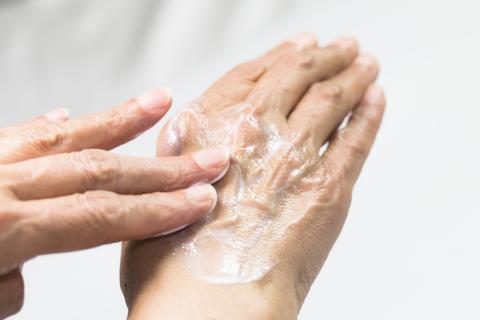UCSF Study Suggests Novel Treatment for Fending off Chronic Age-related Diseases: Moisturizer
University researchers in tandem with the San Francisco Veterans Administration (VA) Health Care System now have reason to believe that inflammation of the skin may further the development of multiple chronic diseases, and one way to help fix the issue is by applying reparative moisturizer.
The study's authors write that as skin begins to lose moisture and deteriorate around age 50, it begins to experience a breakdown of the "permeability barrier." The barrier is meant to both keep water in the body and act as a shield from sinister pathogens outside our bodies.
When this barrier weakens with age because of the loss of moisture, it releases cytokines (a sort of protein released by immune system cells) to signal inflammation in age-affected areas of the skin. Typically, such cytokines are meant to help repair the barrier, but older skin takes more effort to fix, researchers write, so the skin repeatedly releases these "inflammatory signals." Eventually, the cytokines can leak into the blood, potentially causing inflammation all over the body.
Previously, researchers didn't suspect that skin could be to blame to furthering such diseases, but more recent studies have pointed to the possibility that skin inflammation may be to blame for heart disease.
"The inflammation must come from an organ big enough that very minor inflammation can affect the whole body. Skin is a good candidate for this because of its size," said study senior author Dr. Mao-Qiang Man. "Once we get old, we have dermatological symptoms like itchiness, dryness and changes in acidity. It could be that the skin has very minor inflammation, and because it's such a large organ, it elevates circulating cytokine levels."
The UCSF study, funded by the National Institute on Aging, the National Institute of Arthritis and Musculoskeletal and Skin Diseases and the National Natural Science Foundation of China was conducted with 33 adults between the ages of 58 and 95 years old. They were given a type of moisturizer researchers had noted for its ratio of three lipids known to be beneficial to skin health.
The participants were directed to apply the moisturizer all over the body twice a day for a month, after which clinicians found their cytokine levels "to be nearly equivalent with people in their 30s, suggesting that rejuvenating the skin can reverse 'inflamm-aging.'" The specific name of the moisturizer was not given, but the study notes it had a "beneficial ratio of three types of lipids (cholesterol, free fatty acids, and ceramides) that are vital for skin health." A disclosure of potential conflicts of interests lists two authors and UCSF researchers on the study consult for the South Korean company Neopharm, Ltd., which had produced the moisturizer for the trial.
Next, scientists will follow up on their initial findings with a more long-term study to test the effects of applying the moisturizer. If the findings are similar, it may confirm that applying reparative moisturizer may be an effective way of staving off chronic diseases.
